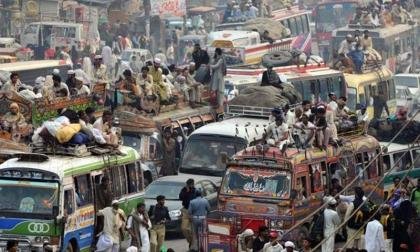The recent increase in petrol prices has sparked widespread outrage, with many claiming that it has had a particularly negative impact on the average person because transport companies have upped their prices right before Eid-ul-Fitr. It is anticipated that this increase in oil product costs will also have an impact on the price of everyday necessities, particularly kitchen supplies.
People in Pakistan were already experiencing inflation of 44.6%, according to the Statistical Department of Pakistan, and the latest increase in petrol prices was likely to make things worse. Petrol now costs Rs282 per litre, while the prices of high-speed diesel and light diesel oil will stay the same at Rs293 and Rs174.68 per litre, respectively. Kerosene oil, on the other hand, has experienced a price hike of Rs5.78 per litre, bringing it to Rs186.07 a litre.
Long-distance carriers have raised prices by 10% to 20% each ticket, and freight service fees have increased by 30%. To celebrate Eid-ul-Fitr with their families, more than 70% of people have begun to go to their home towns, and many have opposed the current administration for the recent hike in petrol costs. The Pakistan Oil Tankers Association and All Pakistan Truck and Trailer Association have opposed the increase in petroleum product prices, and the business community has also warned of a fresh wave of inflation.
Also Read
The All Pakistan Clerks Association (APCA) has said that they are having problems as a result of the government’s incorrect policies and have made the decision to launch a revolution against such policies after Eid-ul-Fitr. While public transportation companies in the Rawalpindi division will meet to discuss the situation, wagon owners and drivers have protested at the end of their routes. In conclusion, the recent increase in fuel prices has sparked a strong response from dealers, transporters, and the general population.
